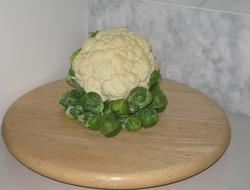Pseudoscience or real science: can you tell the difference?
Published: March 09, 2018
Celebrity endorsement of dietary and physical activity regimes is not new. These celebrity endorsers come in many forms such as actors, athletes, physicians, royalty, and political associates, and promote a variety of aids to health.
It is not unusual for celebrities, such as these, to publish their own particular dietary or health related regime.
Nor is it unusual for some “scientific” explanation to be provided presumably to add “substance” for the success of the regime.
However, the “scientific” or perhaps pseudoscientific explanations are seldom supported by scientific research and may misrepresent scientific knowledge.
Until recently, this pseudoscience has seldom been challenged by the scientific community.
The BBC reported on an article by a Canadian health policymaker and pseudoscience critic who critiqued the diet plan of a North American football athlete which was based on the “alkaline diet”, a diet that claims to make your blood more alkaline by avoiding foods that are “acidic”.
These foods are thought to cause inflammation although there is little evidence to support this. This particular scientist is not alone in overtly critiquing the “celebrity health-guru culture”.
While health “quackery” has been around for centuries Caulfield, who is the government-appointed Canada Research Chair in health law and policy, suggests that scientific “like” language is now used to support pseudoscience.
Comparing an alternative therapy to a complex scientific concept may provide credibility for the pseudo explanation.
He also suggests that celebrities are increasingly powerful as they can initiate ideas through their social media which germinate and quickly spread.
People also like certainty. Scientific inquiry seeks to find the truth, but cannot provide certainty.
Nutrition research is particularly complex as what may seem “true” for one population group...link to the full article to learn more.
References
1.
Whitney, E. & Rady Rolfes, S. (2005). Understanding Nutrition. Belmont, CA: Thomson Wadsworth
2.
Gropper, S.S., Smith, J.L. & Groff, J.L. (2005). Advanced Nutrition and Human Metabolism (4thEd.). Belmont, CA: Thomson Wadsworth.
3.
The scientists calling Tom Brady and Gwyneth Paltrow’s bluff: http://www.bbc.com/news/world-us-canada-42912720
4.
Top five celeb diets to avoid in 2018, according to dieticians http://www.bbc.com/news/health-42264838
5.
Pennycook et al., On the reception and detection of pseudo-profound bullshit. Judgement and decision making. 10() 549-563. 2015

